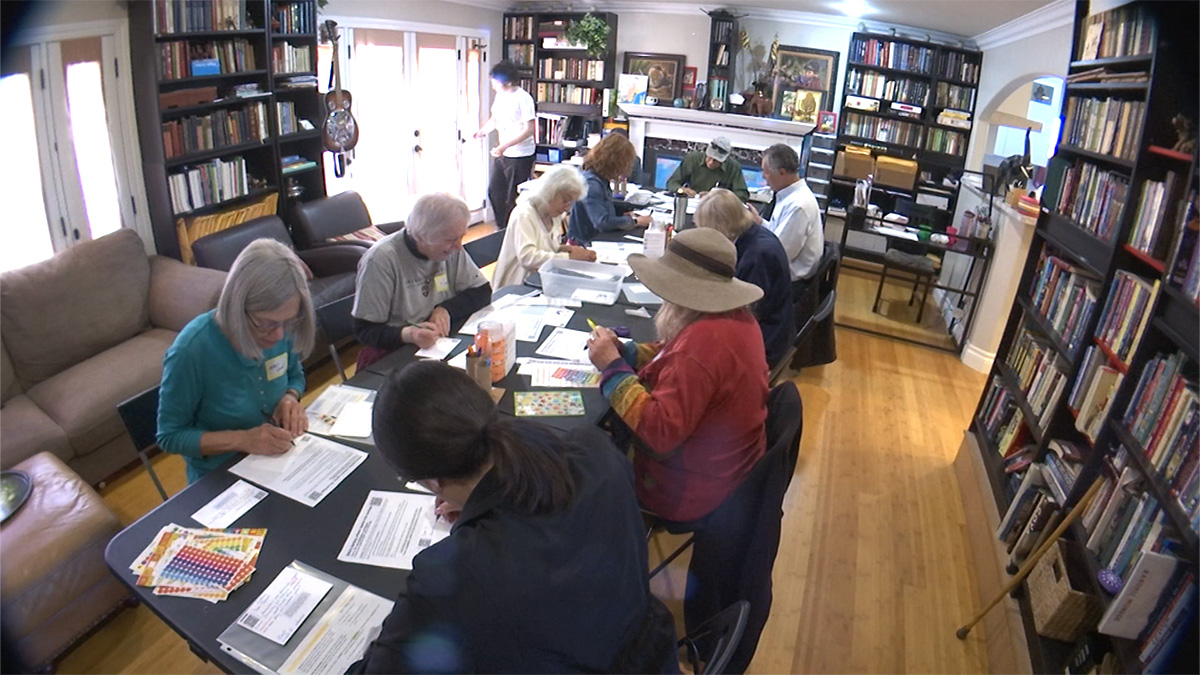California's Department of Motor Vehicles didn't properly prepare for customers lining up to get new federally approved drivers' licenses, leading to hours-long wait times last year, state auditors said Wednesday.
But the long lines that angered motorists and state lawmakers alike merely highlighted significant underlying weaknesses including outdated computers and problems with scheduling appointments, the auditors said.
The finance department auditors said the DMV had "significant deficiencies in planning and implementation" as Californians began updating their drivers' licenses to meet new federal security standards known as Real ID. Airport security checkpoints won't accept cards without special markings required by the federal government after Oct. 1, 2020. California residents must apply in person at DMV offices to get the new cards.
The resulting delays were symptoms of the department's "significant weaknesses in its underlying governance structure and organizational culture," auditors found.
They found a long list of problems including inconsistencies in overseeing field offices, ineffective communications, poor budgeting, inadequate staffing of service windows, missed opportunities to improve customer service, and a lack of employee training.
It is difficult for customers to quickly and consistently reserve appointments, auditors found, with variations in availability depending on location and problems with motorists reserving duplicate appointments.
Outdated computers, poor connections and inadequate maintenance led to computer failures that stalled customers' ability to get services, the auditors said.
"Without strengthening the underlying foundation supporting its operations, DMV will continue facing challenges in efficiently and effectively delivering services to its customers," auditors concluded.
Department officials agreed with the audit findings. They are required to submit a detailed correction plan within 60 days and update it every six months until the problems are solved.
Local
Acting director Kathleen Webb said the department is "committed to reengineering business practices and reducing wait times" and is already taking steps including increasing self-service options and better monitoring its computer system.
Auditors said the department could accept credit card payments and use more text message notifications to improve customer service.
Webb said the DMV will seek more money to carry out some of the recommendations.
Republican Assemblyman Jim Patterson of Fresno said DMV officials had years to prepare yet started making Real ID a priority only months before the rollout in January 2018.
He was upset by findings of delays due to staffing shortages and scheduling problems and questioned the department's claim that wait times are down to 30 minutes. There still are regular reports of longer waits before customers can even start the process, he said.
"This audit explains what the public and the Legislature have known for some time — the DMV directors were asleep at the switch for a decade leading up to the Real ID rollout and customers paid the price with exploding wait times," he said in a statement.
Patterson said the state needs to reform the department "from the ground up" or "the DMV will continue to fail."
Former Gov. Jerry Brown ordered the audit in September because of long lines and wait times at DMV field offices. He acted a day after a computer outage hampered more than a third of DMV offices for several hours, preventing about 70 offices from processing driver's license, identification card and vehicle registration matters.
New Gov. Gavin Newsom also has a "strike team" looking at ways to improve the DMV.
The audit examined the DMV's information technology and customer service, but the department also mishandled about 23,000 voter registrations under the state's new "motor voter" law, which took effect nearly a year ago and lets residents automatically register to vote. The DMV sent the secretary of state's office incorrect information for thousands of voters, mostly affecting customers' vote-by-mail, language and political party selections.



